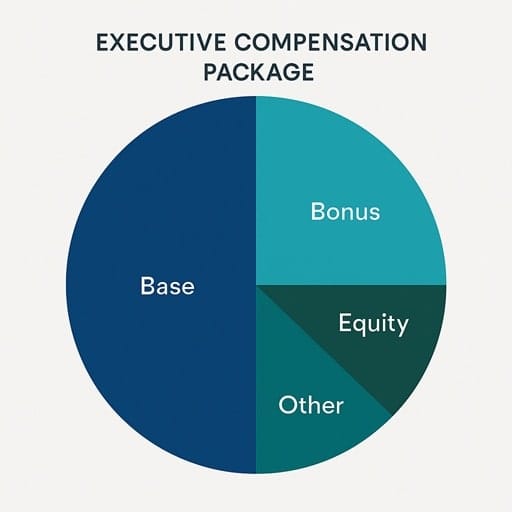- Why Compensation Negotiation Is Different at the Executive Level
- How Search Firms Handle Executive Compensation Negotiation
- Role of a Recruiter in Managing Candidate Salary Expectations
- Executive Offer Negotiation Strategy with a Search Partner
- Structuring a Competitive Offer for a Senior Leader
- Negotiating Executive Compensation Packages Beyond Salary
- How Search Consultants Mediate Salary Discussions
- How to Handle Candidate Counter-Offers in an Executive Search
- Common Pitfalls to Avoid in Executive Offer Negotiations
- Leveraging Your Search Firm During the Final Offer Stage
- Conclusion: Securing Your Hire with a Strategic Partner
When a retained executive search enters its final, most delicate phase—closing the chosen candidate—compensation becomes the focal point. For hiring managers and HR leaders, this is often a high-stakes negotiation with significant financial and strategic implications. Fortunately, one of the greatest value-adds of working with a retained search firm is their expertise in navigating executive-level compensation discussions.

Why Compensation Negotiation Is Different at the Executive Level
Unlike standard hires, executive compensation packages go well beyond salary. They often include bonuses, equity, relocation, long-term incentives (LTI), severance structures, and even non-monetary benefits like schedule flexibility or advisory roles. This complexity requires a strategy—not just a number.
How Search Firms Handle Executive Compensation Negotiation
Search partners act as expert mediators, providing a strategic buffer between client and candidate. They ensure that expectations are aligned early and recalibrated often. Rather than simply “delivering the offer,” they guide the entire process—from market benchmarking and internal alignment to candidate presentation and final close.
Role of a Recruiter in Managing Candidate Salary Expectations
Great recruiters start managing expectations from the very first conversation. By discussing both current compensation and future motivations, they help preempt surprises down the road. If a candidate expects $500K and your budget tops out at $350K, it’s far better to find that out on day one than after final interviews.
Executive Offer Negotiation Strategy with a Search Partner
Your search partner becomes a strategic advisor during offer construction. Together, you’ll develop an executive offer negotiation strategy that’s grounded in:
- Market compensation data
- Candidate motivation insights
- Company policies and budget constraints
- Offer structure flexibility (e.g., higher sign-on bonus vs. equity)
Structuring a Competitive Offer for a Senior Leader
A competitive offer isn’t always about paying the most—it’s about aligning the offer with the candidate’s values and career goals. Your search firm helps you tailor the offer by:
- Benchmarking against current market data
- Weighing trade-offs between base, bonus, and equity
- Stress-testing the offer for both short- and long-term appeal
Negotiating Executive Compensation Packages Beyond Salary

Search consultants understand that negotiating executive compensation packages beyond salary is a delicate balancing act. They guide clients through discussions on:
- Deferred compensation
- Stock options or RSUs
- Golden handcuff provisions
- Tailored performance bonuses
This makes the difference between a rejected offer and an enthusiastic “yes.”
How Search Consultants Mediate Salary Discussions
Your search partner is a neutral third-party mediator who ensures that tough conversations remain objective and focused. This reduces tension, preserves goodwill, and helps avoid emotional decision-making on either side.
How to Handle Candidate Counter-Offers in an Executive Search
Counter-offers from a candidate’s current employer are common at the executive level. Your search partner helps you:
- Anticipate and prepare for this scenario
- Reaffirm the candidate’s motivations
- Respond with strategic, not reactive, moves
- Decide when to walk away
Common Pitfalls to Avoid in Executive Offer Negotiations
Some avoidable mistakes include:
- Delaying the offer too long after interviews
- Lowballing a well-qualified finalist
- Ignoring non-financial motivators
- Failing to align internally before extending an offer
Your search partner helps you steer clear of these pitfalls, keeping the close process on track.
Leveraging Your Search Firm During the Final Offer Stage
The final offer stage is not the time to go it alone. Your search partner is your greatest asset for managing complexity, mitigating risk, and closing with confidence. By keeping communication flowing and expectations aligned, they increase your odds of securing your first-choice candidate.
Conclusion: Securing Your Hire with a Strategic Partner
Navigating the final offer stage is where a retained search firm provides some of its most significant value. By acting as a strategic advisor, a data-driven expert, and a neutral mediator, your search partner transforms a potentially contentious negotiation into a smooth and successful close. Their guidance ensures you secure your top candidate with a compelling offer that is both competitive and sustainable.
Successfully closing the offer is the culmination of a well-run search process. To understand all the steps that lead to this critical moment—from the initial kick-off to final interviews—explore our complete guide to the search lifecycle.
➡️ Explore the Full Search Journey: The Retained Search Process: A Step-by-Step Timeline from Mandate to Onboard
To learn how our firm’s expert guidance ensures a successful outcome for our clients, visit our main practice area page.
➡️ Discover Our Approach: Retained Executive Search Firm

